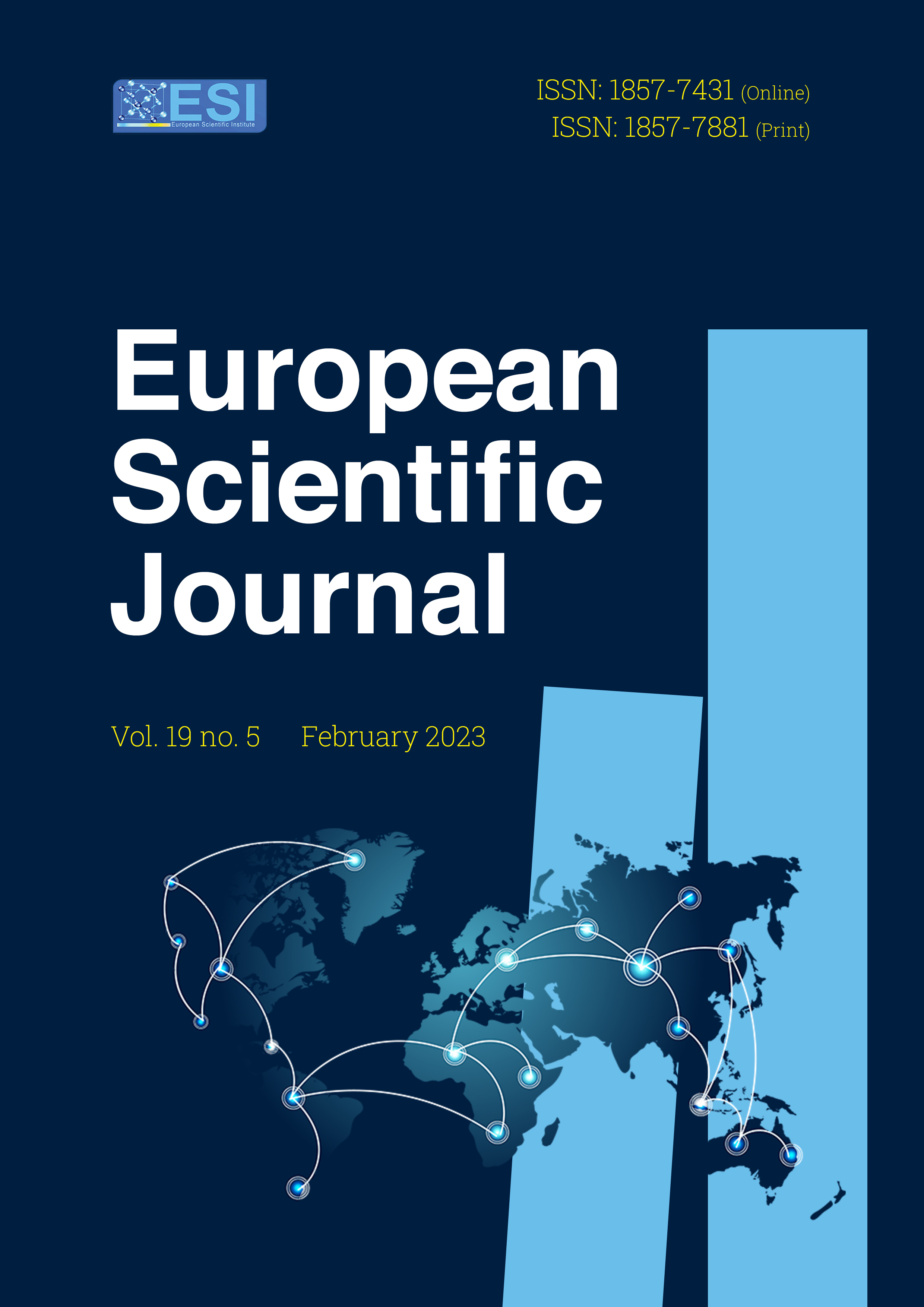The Role of the European Union in Palestinian State-Building
Abstract
This paper examines the role of the European Union (EU) in creating a Palestinian state and whether there is a coherent unity among EU Member States regarding its recognition. The research hypothesis is that EU Member States do not unanimously recognize the legitimacy of a Palestinian state, despite the EU's collective belief in creating a two-state solution. The methodology combines qualitative and quantitative research. The qualitative research involves understanding political processes and analyzing relevant scientific studies and documents. The quantitative research involves statistical analysis of voting outcomes of EU Member States in the UN General Assembly (UNGA). The analysis of UNGA resolutions between 2012 and 2022 found that there is no coherent unity among EU Member States regarding the recognition of a Palestinian state. Although the EU collectively supports a two-state solution, the foreign policy used has been insufficient to overcome the deep-rooted conflicts. In conclusion, the research suggests that a more effective approach is required to overcome the deep-rooted conflicts and achieve a common ground concerning the recognition of a Palestinian state. There is a need for a shift in the political and legal framework, which may be influenced by potential geopolitical reorganization in the Middle East.
Downloads
PlumX Statistics
References
2. Ash, R.W. (2009). Is Palestine a State? The Palestine Declaration To The International Criminal Court. The Statehood Issue. Newark. Rutgers Law Record.
3. Baruch, P. S. (2013). A Palestinian State: Legal Implications and Significance for Israel. Strategic Assessment, 15/4.
4. Del Sarto, R. (2007). Wording and Meaning(s): EU-Israeli Political Cooperation According to the ENP Action Plan. Mediterranean Politics 12 (1): 59–75
5. Dimitris Bouris (2019). Unintended Consequences of State-building Projects in Contested States: The EU in Palestine, The International Spectator, 54:1, 92-95, 92-96, 96-97, 97-100
6. Dorsey, J. M. (2017). Trading Jerusalem for Iran
7. Gazdik, GY. (2011). Az izraeli-palesztinviszonyújabbfejleményei, az Obama-beszédkihatásai I. NemzetésBiztonság 2011/9
8. Gold, D. & Morrison, D. (2010). Averting Palestinian Unilateralism: The International Criminal Court and the Recognition of the Palestinian Authority as a Palestinian State. Jerusalem Center for Public Affairs. Jeruzsálem
9. Max Weber (1970). Állam, Politika, Tudomány. Közgazdaságiés Jogi Könyvkiadó. Budapest
10. Mustafa, T. (2015). Damming the Palestinian spring: security sector reform and entrenched repression. Journal of Intervention and Statebuilding 9 (2): 212–230.
11. Müller, P. & Zahda, Y. (2018). Local perceptions of the EU's role in peace-building: The case of security sector reform in Palestine. Contemporary Security Policy 39 (1): 119–141.
12. Nagan, W. & Haddad, A. M. (2012). The Legal and Policy Implications of the Possibility of Palestinian Statehood. University of Florid. Levin College of Law.
13. Nagy Milada (2017). A palesztinállamiságkérdéseés a nemzetköziközösség. MediterránésBalkánFórum. XI. évfolyam 1. számPécs pp. 38-40, 40-42, 40-44, 44-46.
14. Paragi Beáta (2009). Békefolyamathozkötöttállamépítés a Közel-Keleten. A palesztinesettanulságai. KülügyiSzemle. KKI. Budapest
15. Ravid, B. (2011). Netanyahu: Israel Will Agree to Upgrade of Palestinian Status, Not Statehood. Haaretz.
16. Ronen, Y. (2009). ICC Jurisdiction over Acts Committed in the Gaza Strip: Article 12 (3) of the ICC Statute and Non-State Entities. International Journal of Criminal Justice 7/1
17. Sayigh, Y. (2007). Inducing a failed state in Palestine. Survival 49 (3): 7–39.
18. Shlaim, A. (2005). The rise and fall of the Oslo peace process. International Relations of the Middle East, Oxford University Press, Oxford, pp. 241-261.
19. Wildeman, J. & Tartir, A. (2013). Can Oslo's failed aid model be laid to rest?
20. https://documents1.worldbank.org/curated/en/960071513228856631/pdf/ACS22471-REVISED-Palestine-Trade-Note-Web.pdf Downloaded:01.07.2023
21. https://www.france24.com/en/middle-east/20221231-un-asks-icj-to-consider-consequences-for-israeli-occupation-of-palestinian-territories Downloaded:01.08.2023
22. https://documents.worldbank.org/pt/publication/documents-reports/documentdetail/864951468140640370/west-bank-and-gaza-towards-economic-sust-of-a-future-palestinian-state-promoting-private-sector-led-growth Downloaded:01.21.2023
23. https://lobelog.com/trading-jerusalem-for-iran/ Downloaded:01.21.2023
24. https://www.gov.il/en/departments/news/israel-and-czech-republic-sign-gtg-agreement-5-october-2021 Downloaded 01.25.2023
25. https://oeil.secure.europarl.europa.eu/oeil/popups/summary.do?id=1727954&t=d&l=en Downloaded: 01.25.23
26. https://hu.wikipedia.org/wiki/Az_iszlám_EurópábanDownloaded: 02.02.2023
Copyright (c) 2023 Marton Seidner

This work is licensed under a Creative Commons Attribution-NonCommercial-NoDerivatives 4.0 International License.








